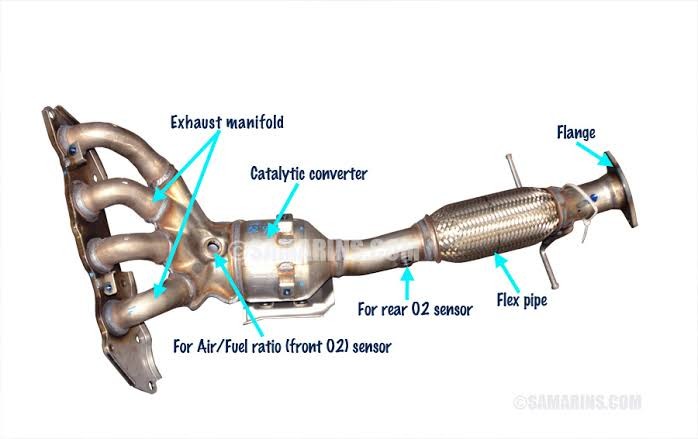Catalytic converters reduce harmful emissions, improve fuel economy, and extend engine life. Signs of a faulty converter include check engine light, reduced power, loud noise, and increased emissions. Proper maintenance is crucial.
What is a catalytic converter?
A catalytic converter is a device that reduces harmful emissions from vehicles. It is a part of the exhaust system and is located between the engine and the muffler. Catalytic converters work by using a chemical reaction to convert harmful gases into less harmful gases.
How do catalytic converters work?
Catalytic converters contain a catalyst, which is a substance that speeds up a chemical reaction. The catalyst in a catalytic converter is usually made of platinum, palladium, or rhodium. These metals are used because they are very good at catalyzing the reactions that convert harmful gases into less harmful gases.
The chemical reactions that take place in a catalytic converter are:
- The oxidation of carbon monoxide: Carbon monoxide is a poisonous gas that is produced when fuel is burned incompletely. In a catalytic converter, carbon monoxide is oxidized into carbon dioxide, which is a less harmful gas.
- The reduction of nitrogen oxides: Nitrogen oxides are gases that can cause smog and acid rain. In a catalytic converter, nitrogen oxides are reduced back into nitrogen and oxygen, which are harmless gases.
- The oxidation of hydrocarbons: Hydrocarbons are unburned fuel that can be harmful to the environment. In a catalytic converter, hydrocarbons are oxidized into carbon dioxide and water, which are less harmful gases.
What are the benefits of having a catalytic converter?
Catalytic converters have many benefits, including:
- Reduced emissions: Catalytic converters reduce harmful emissions from vehicles, which can help to improve air quality and reduce pollution.
- Improved fuel economy: Catalytic converters can improve fuel economy by up to 10%.
- Extended engine life: Catalytic converters can help to extend the life of your engine by reducing the amount of harmful deposits that build up in the engine.
What are the signs of a bad catalytic converter?
There are a few signs that your catalytic converter may be bad, including:
- Check engine light: If your check engine light comes on, it could be a sign that your catalytic converter is not working properly.
- Reduced engine power: If you notice a decrease in your engine power, it could be a sign that your catalytic converter is not working properly.
- Loud exhaust noise: If you hear a loud exhaust noise, it could be a sign that your catalytic converter is damaged.
- Excessive emissions: If you notice an increase in your vehicle's emissions, it could be a sign that your catalytic converter is not working properly.
How to maintain your catalytic converter
There are a few things you can do to help maintain your catalytic converter, including:
- Get regular oil changes: Regular oil changes can help to keep your engine clean and free of deposits, which can help to extend the life of your catalytic converter.
- Avoid driving with a check engine light on: If your check engine light comes on, it's important to have it checked out as soon as possible. Driving with a check engine light on can damage your catalytic converter.
- Avoid driving with a cold engine: When you start your car, let it warm up for a few minutes before driving. This will help to reduce the amount of harmful emissions that are produced.
- Avoid driving in stop-and-go traffic: Stop-and-go traffic can cause your engine to run rich, which can produce more harmful emissions.
- Avoid using aftermarket parts: Aftermarket parts that are not made to fit your car properly can damage your catalytic converter.
How to replace a catalytic converter
If your catalytic converter needs to be replaced, it's important to have it done by a qualified mechanic. Catalytic converters are expensive, so it's important to make sure that the new one is installed properly.
Conclusion
Catalytic converters are an important part of your vehicle's exhaust system. They help to reduce harmful emissions and improve air quality. By following the tips in this article, you can help to keep your catalytic converter in good working order and extend its life.

Comments (0)
Please login to join the discussion
Be the first to comment on this article!
Share your thoughts and start the discussion